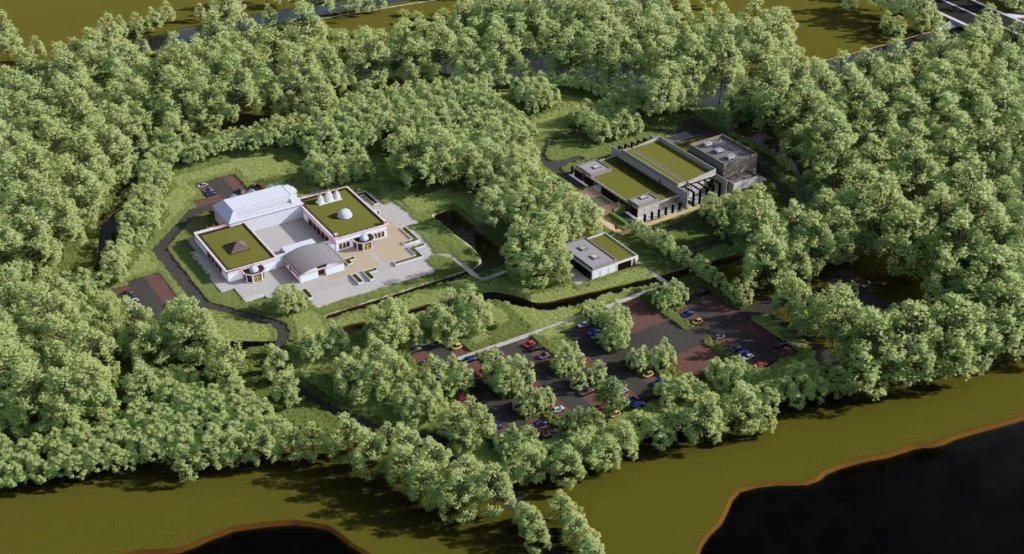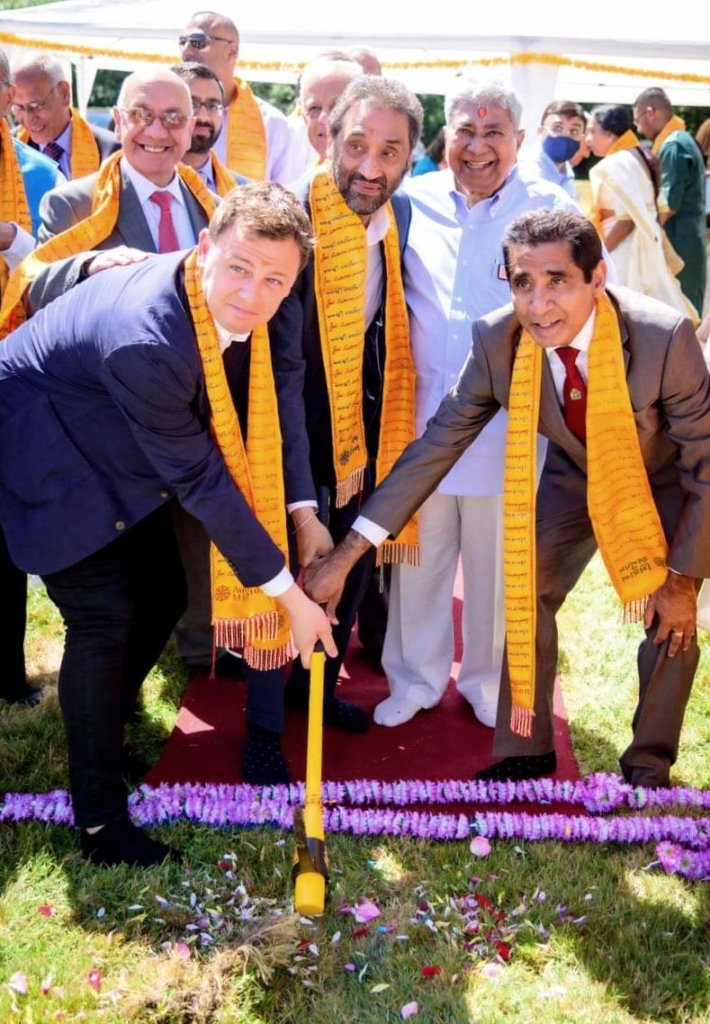A Hindu crematorium has been a need in the Hindu community in the UK for many years, and now they are finally getting one. Read Oxford and OCHS alumni Bhavisha Taylor’s story about how she changed the council’s opinion.
Crematoria already existing in the UK do not cater to Hindu rites and rituals. They are not spacious enough and do not allow for ritual washing or communal dining. It has been a long-term need for the Hindu community to get a place that serves us sufficiently around ‘antim sanskar’ or last rites.
Hindus in their various capacities, organizations and influential individuals, have been trying to get permission to build a Hindu crematorium in the UK for up to the past five decades, and for one reason or another have not been successful.
I got involved in this campaign through my guru, Param Puya Sahebji, in the Anoopam Mission. We aimed to build a crematorium on the Anoopam Mission temple grounds in Buckinghamshire in south-east England. Initially, research was done on whether we could have it on the temple grounds or not. Research on this was done in India and we received approval for the plan. Then the application process began.
The planning consultants that the council had appointed for this case were in favour of a crematorium, but the counsellors rejected the application. It was a big blow for us. The counsellors argued that because our temple is on what they call Green Belt land, they didn’t want any development happening here. That whole case was so complicated.
But my guru said, “we have gone this far we should go to appeal.” When it came to the appeal it was decided that I, because of my Oxford degree in Hinduism, should be the special witness and articulate the Hindu needs. I had to prepare a paper to present to the legal team so that they could understand the importance of a Hindu crematorium on our temple grounds.
I wrote an academic paper for them to read. Nobody was interested in the emotional aspects, this case could not be won only with arguments about well-being. We had to be able to present our case in a way that was academically up to the mark. That task came to me.
I needed to first read through all the relevant material. These were journals and articles which I couldn’t get hold of on my own. The Oxford Centre for Hindu Studies assisted me with this and made it possible for me to deliver the paper in time. I was given short notice and only had two weeks to do the research and write the paper.
I know I wouldn’t have been able to write the paper in this way if I hadn’t studied Hinduism academically. The specific topic I had to research for this case was not something I had studied at Oxford. There are only so many topics you can study in a year and Hindu cremation was very specific. But the Oxford degree gave me the tools to be able to produce the right arguments. I had learned how to research, how to structure an argument, and how to articulate and write it in an academic way. My paper was called “Acceptance, Compromise, and Adaptation: The Hindu Reality of Handling Death in Britain”.
Once the paper was ready, we sent it to the legal team. They were happy with the paper. It did not give rise to more questions and they understood what a crematorium would mean for Hindus, not only from a personal perspective but from an academic perspective.
The paper went through the cremation rituals taking into account the fact that Hindus are not a homogeneous body. Different groups have different practices and interpretations. However, despite all of those differences, there are central ideas that bind all of us together. When it comes to death, and the concept of the body and the soul as two separate entities and in terms of karma and reincarnation Hindus have similar beliefs across the board.
For Hindus, death is not auspicious or pure. However, to have it on sacred grounds would certainly make for a befitting funeral or cremation. We gave evidence that in Varanasi, the most sacred cremation ground for Hindus has the sacred river Ganges running beside it and is within one-minute proximity of temples. It is between those two sacred boundaries that the cremation takes place.
In India, wherever you may be, you are never far from a temple. There is a shrine on every street, so wherever you are you are never far from what Hindus perceive as the divine. This is not the case in Britain, and therefore to have a crematorium on the temple grounds would provide great peace of mind to the grieving family and provides a great sanctity to the whole rite.

The purpose of my paper was to get all of that across to somebody who knows absolutely nothing about Hindu cremation. The inspector and the council were listening to our arguments, hearing them for the first time and they had no cross-questioning, as there was nothing to cross-question.
My arguments were not emotional, they were bulletproof research. And that is how we won the case and got permission to build a Hindu crematorium on our temple grounds.
It is important to emphasize the need for academically trained individuals within the Hindu traditions who can articulate our needs so that they resonate with the outside world.
Many people in different Hindu communities have knowledge about Hinduism, but most have knowledge limited to their particular philosophy or sampradaya. To be able to articulate needs across the board and take into account the cultural heterogeneity and controversies and give an impartial and objective view is very difficult and can only be done through an academic study.
Prominent individuals in the community have been working hard for the past 50 years to get this crematorium through without success. In the end, what was needed, for our claim to be taken seriously, was a well-researched academic paper.

We will now get the first purpose-built Hindu faith crematorium in the UK. It will comprise two waiting rooms, two private ritual rooms, a large ceremony hall, a crematory hall, and parking.
There is also a separate kitchen and dining hall, and showering facilities. This will enable ritual washing and communal eating following a cremation. The new crematorium will save devotees from having to repatriate the departed to India.
Read more about the construction of the crematorium here.
This was landmark legislation and a huge victory for the Hindu community in the UK.
In gratitude to the OCHS and to honour the extraordinary work they are doing, we have pledged to sponsor a graduate scholarship. The scholarship will be funded by the income from the crematorium when it is ready.

Oxford Centre for Hindu Studies
13 – 15 Magdalen Street, Oxford OX1 3AE.
UK Tel: 01865 304300
Regd Charity No. 1074458